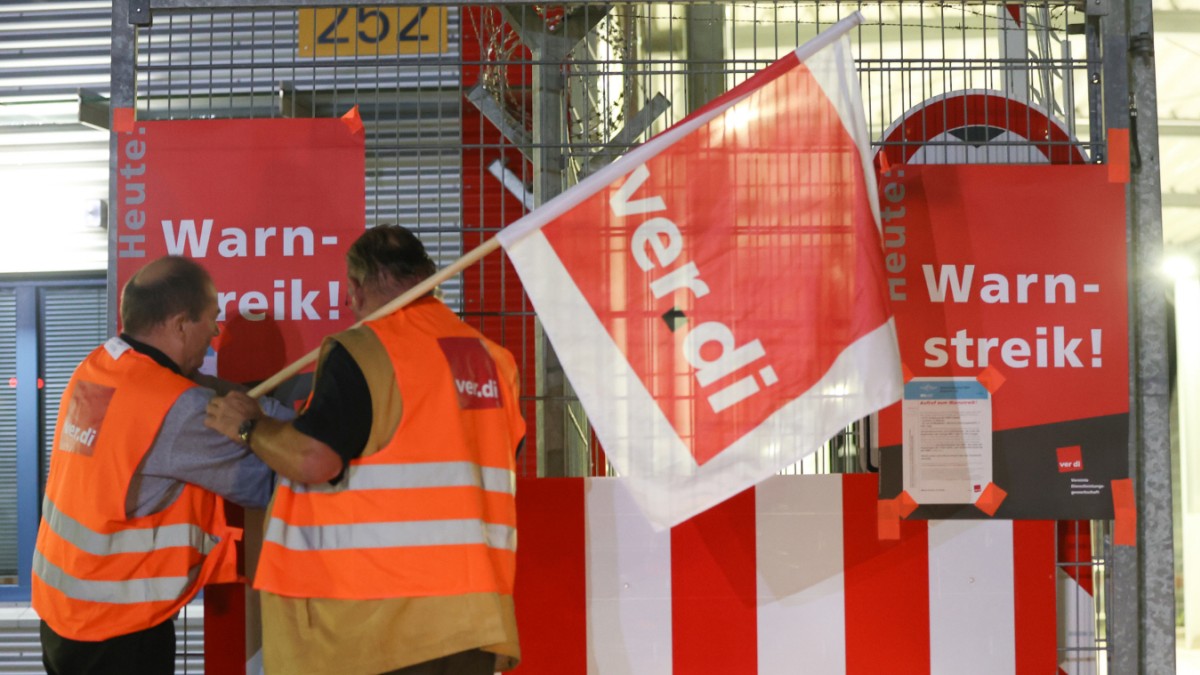The Verdi union extends the collective bargaining dispute in the public sector to several airports. This Friday, the airports in Munich, Frankfurt, Hamburg, Stuttgart, Dortmund, Hanover and Bremen are to be paralyzed all day, as the union announced on Wednesday night. Passengers must be prepared for delays and flight cancellations. The strike also affects the Munich Security Conference.
Frankfurt Airport even advises passengers not to appear at the airport on Friday. The operating company Fraport announced that it would not be possible to catch a plane in Frankfurt. Transfer traffic is also likely to be affected and will not be processed. Concrete flight cancellations are the responsibility of the airlines. Lufthansa has not yet commented on the flight offer on Friday. So far, around 1,000 take-offs and landings with almost 137,000 passengers have been planned for Friday at Germany’s largest airport.
Fraport Labor Director Julia Kranenberg criticized the warning strike: “At this point in time, a strike of this magnitude is completely excessive. The effects on uninvolved third parties are disproportionate. We appeal to the collective bargaining partners to find a common solution – at the negotiating table.”
With the now continued warning strikes, the employees want to give emphasis to their demands in the ongoing collective bargaining dispute between the federal and local governments. The employees of the operating companies at the airports are often paid according to the collective agreements of the municipalities. Further warning strikes have been announced in Hesse, Baden-Württemberg and North Rhine-Westphalia, among others, before the second round of collective bargaining on February 22nd and 23rd.
In the ongoing collective bargaining negotiations, Verdi and the civil servants’ association DBB are demanding 10.5 percent more income, but at least 500 euros more for the approximately 2.5 million employees in the federal and local public sector. The term of the new collective agreement is to be twelve months. The employers have so far rejected the claims. In January, Verdi had already struck at the airports in Berlin and Düsseldorf in two other collective bargaining disputes.
Air traffic extremely prone to strikes
In Düsseldorf it was about a new contract with the ground handler Aviapartner, in Berlin the employees of the operating company, the ground handling services and the aviation security inspectors went on strike. An agreement was reached in Berlin after the warning strike. Air traffic is extremely prone to strikes because of the fragmented service providers, because many small, security-relevant groups are powerful enough to strike to paralyze operations. Basically, the strike by the airport fire brigade is enough to shut down the entire operation.
In the past, for example, the forces at passenger control, the pilots, technicians, flight attendants, apron controllers or the ground staff have gone on strike. They are partly represented by divisional unions. Among other things, Verdi has access to the flight infrastructure via the public service collective agreement at issue here, according to which many employees of the airport companies are paid.
The last major warning strike with similar consequences was several years ago: In April 2018, hundreds of flights across Germany had to be canceled because collective bargaining for municipal and federal employees was not progressing. In eight federal states, tens of thousands of employees went down their work during a warning strike. In addition to airports, urban transport, daycare centers, clinics, administrations and indoor swimming pools were also affected in many places.
